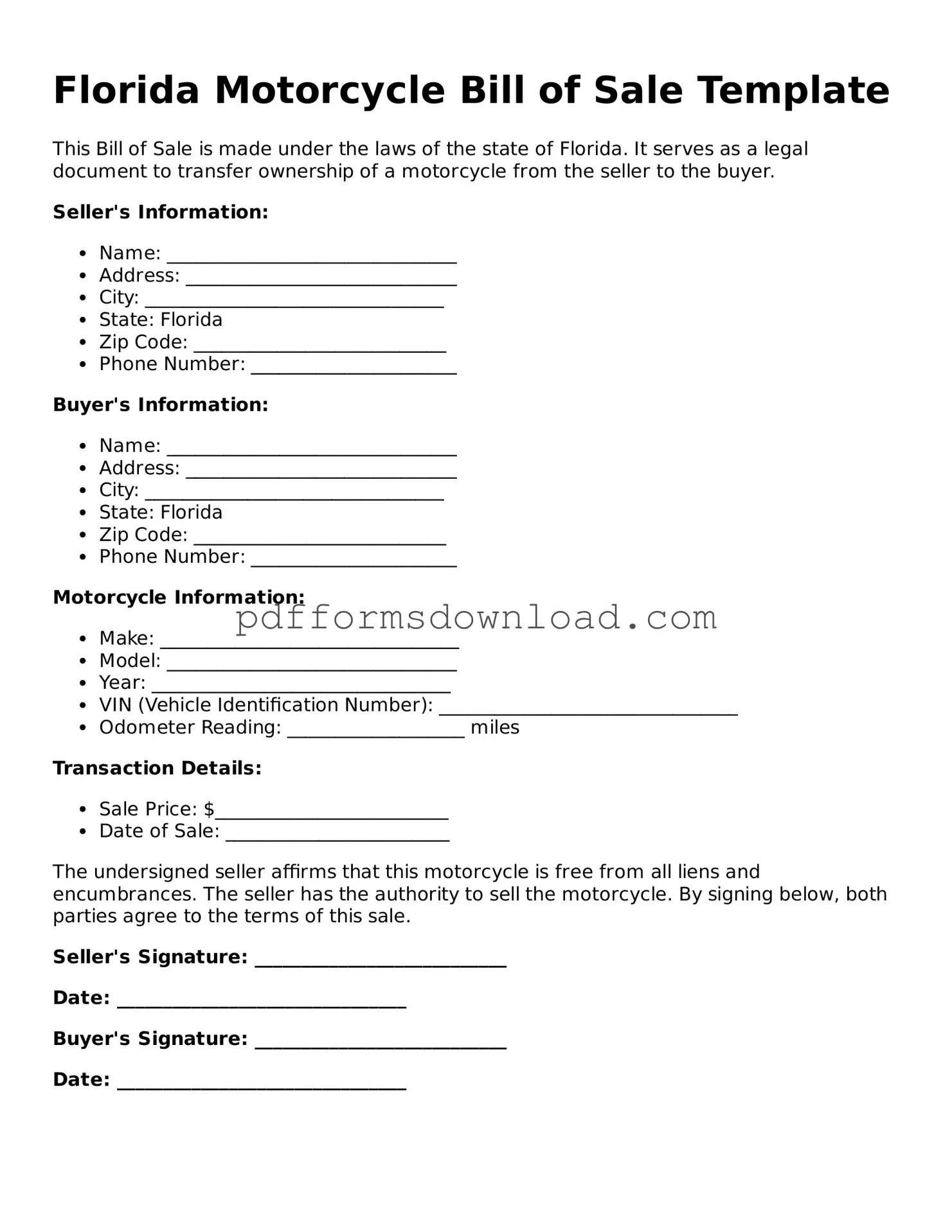What is a Florida Motorcycle Bill of Sale?
A Florida Motorcycle Bill of Sale is a legal document that records the transfer of ownership of a motorcycle from one party to another. This form includes essential details such as the names and addresses of both the seller and buyer, the motorcycle's make, model, year, vehicle identification number (VIN), and the sale price. It serves as proof of the transaction and can be useful for registration purposes with the Florida Department of Highway Safety and Motor Vehicles.
Is a Bill of Sale required in Florida when selling a motorcycle?
While Florida does not legally require a Bill of Sale for motorcycle transactions, it is highly recommended. Having a Bill of Sale protects both the seller and the buyer by providing a written record of the transaction. This document can help resolve any disputes that may arise regarding ownership or sale terms in the future.
What information should be included in the Bill of Sale?
A comprehensive Bill of Sale should include the following information: the names and addresses of both the seller and buyer, the motorcycle's make, model, year, and VIN, the sale price, the date of the transaction, and the signatures of both parties. Including any warranties or conditions of the sale can also be beneficial.
Can I create my own Bill of Sale?
Yes, you can create your own Bill of Sale for a motorcycle in Florida. There are no specific state forms required, but it is important to ensure that all necessary information is included. Various templates are available online, which can help guide you in drafting a complete and effective document.
Do I need to notarize the Bill of Sale?
Notarization is not required for a Bill of Sale in Florida. However, having the document notarized can add an extra layer of protection and authenticity. If the transaction involves a large sum of money or if either party requests it, notarization may be a prudent step.
What should I do with the Bill of Sale after the transaction?
After completing the transaction, both the buyer and seller should keep a copy of the Bill of Sale for their records. The buyer will need it for motorcycle registration and title transfer. It is wise to store this document in a safe place, as it may be needed for future reference or in case of disputes.
Can I use a Bill of Sale for a motorcycle purchased from a dealer?
When purchasing a motorcycle from a dealer, a Bill of Sale may not be necessary, as dealers often provide a sales invoice or receipt that serves a similar purpose. However, if you want additional documentation for your records, you can request a Bill of Sale from the dealer. This can help clarify the transaction details and ensure you have all relevant information documented.

